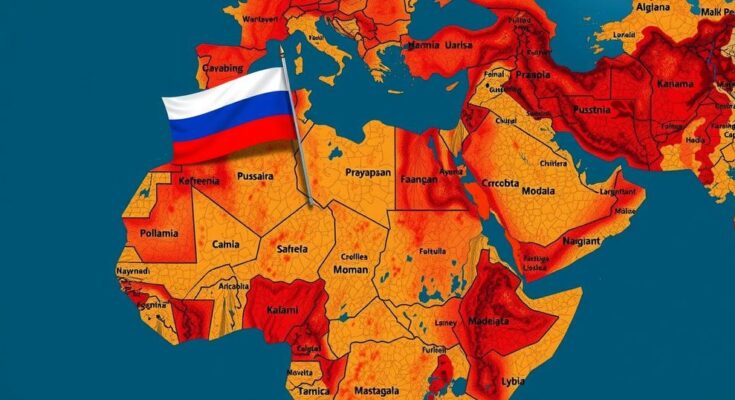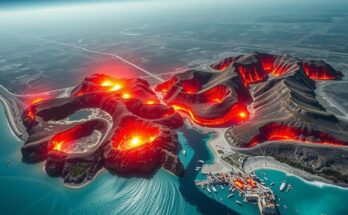Russia has sent approximately 200 military instructors to Equatorial Guinea to protect the presidency, reflecting an expansion in West Africa despite losses in Mali. This move is part of a broader strategy to counter declining Western influence and secure economic opportunities, especially in the oil sector, while supporting the Obiang dynasty amidst domestic instability.
In recent weeks, Russia has dispatched approximately 200 military instructors to Equatorial Guinea to bolster presidential security, signaling an increase in Moscow’s presence in West Africa despite setbacks in Mali. These Russian personnel are reportedly training elite guard units in the country’s main cities, amidst a backdrop of declining Western influence in the region. Russia’s engagement is part of a broader strategy, capitalizing on potential economic opportunities and seeking to counteract Western actions, particularly in the context of ongoing geopolitical tensions. Equatorial Guinea, with a population of 1.7 million, is governed by President Teodoro Obiang Nguema Mbasogo, who has held power since 1979. The Russian presence not only aims to safeguard the ruling dynasty but also to provide military training amid growing uncertainties. Reports indicate that these Russian instructors may include elite troops, potentially from Belarus, underlining Russia’s efforts to expand its influence in Africa through both military and economic means. The influx of Russian military advisers coincided with job postings in Russian pro-military Telegram channels, offering lucrative contracts for private security personnel. Additionally, the Russian deployment becomes crucial to protecting President Obiang’s son, Teodoro Nguema Obiang Mangue, the vice president and apparent heir, who has faced significant legal challenges internationally. Amidst this backdrop, discussions have emerged regarding Russian investment in Equatorial Guinea’s oil sector, amidst waning U.S. interest in the region. The ongoing Russian military presence reflects a shift in security dynamics across Africa, especially following the Wagner Group’s operational challenges in the region. Moscow’s strategy appears focused on consolidating power through various military proxies and maximizing economic interests in unstable territories, as evidenced by the move to materialize interests in Equatorial Guinea’s energy sector.
The increasing Russian military involvement in Equatorial Guinea mirrors a broader trend of diminishing Western influence in West Africa. Since Ukraine has become a focal point of geopolitical confrontation, countries like Equatorial Guinea are being seen as new avenues for Russia to expand its economic and military reach. The deployment of military instructors aims to secure the regime of an aging president while also addressing the region’s challenges posed by insurgent groups. Russia’s strategy emphasizes both financial gains and strategic positioning amid Western geopolitical pressures.
The recent deployment of Russian military instructors to Equatorial Guinea illustrates Moscow’s ongoing strategy to expand its influence in West Africa. With the backing of military assets, Russia aims not only to safeguard the ruling elite but also to engage economically, particularly in the energy sector. The shift in security alliances symbolizes a significant realignment in regional power structures, highlighting the West’s waning presence and Russia’s opportunistic advancements in Africa.
Original Source: www.usnews.com




